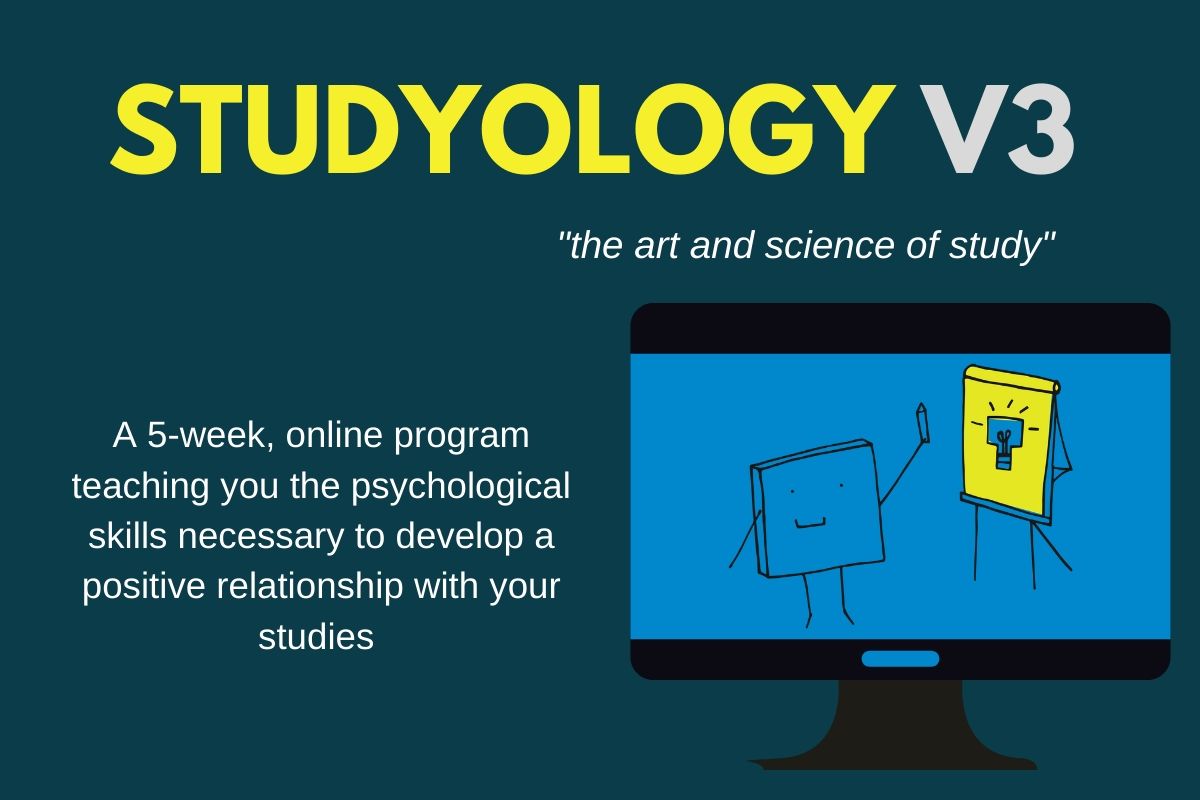
So we’re 3 weeks into the 5-week Studyology program being run online in Collaborate from the Oasis Online FLO topic.
For those that don’t know, Studyology is a program designed to help students tackle procrastination. It draws on ideas and principles from Acceptance and Commitment Therapy.
I thought I’d stop and take a moment to reflect on the program and how it is going.
If you want to learn a bit more about the history of Studyology, visit this post.
Much of the content of Studyology was written by Ben Smith. Ben had been working as a counsellor for years and seen many cases of procrastination. He developed a core set of lessons and ideas that he had found were helpful for students trying to overcome this very common problem. He pulled them together into a coherent set and thus Studyology V1 was born.
When the Coronavirus lockdown hit, I saw this as a good opportunity to develop these materials further and look to create an online program that students could join.
Studyology V3 consists of 5 sessions, the rough outline as follows:
Session 1 – psychological flexibility – the key to overcoming procrastination
Session 2 – understanding why we procrastinate – the most common procrastination strategies
Session 3 – dealing with the difficult thoughts, feelings, memories, beliefs and sensations that drive procrastination
Session 4 – reconnecting with the values that led us to study/work in the first place
Session 5 – understanding avoidance and exposure – blueprint for overcoming many similar problems
The sessions are quite experiential. By that I mean that within the sessions I guide you through the psychological exercises that I then recommend you use at home.
So within a 1-hour session, we might do 2 or 3 brief mindfulness or defusion or acceptance exercises, and then I send you home to keep trying them.
The theory underpinning this program is that procrastination is a form of experiential avoidance, an attempt to escape uncomfortable, undesirable thoughts, feelings, memories, beliefs and sensations.
These experiences arise when we start to study or form the intention to study. Why these experiences are triggered by study/intention to study varies between participants. However, what is common is that each participant in the program has come to form a not-so-great relationship with their study, and even just the thought of study can trigger a range of escape/avoidance behaviours.
These escape behaviours (experiential avoidance) can become so ingrained that the student barely even registers that they are avoiding their study. They just know that they keep putting it off and off, until they are confronted by many tasks needing to be done at the last minute.
Studyology teaches you how to slow down the mental process from when you form the intention to study.
Slowing this process down (using mindfulness exercises) allows you to gain access to the thoughts, feelings, memories, beliefs and sensations that are triggered by study. Instead of escaping, you can apply defusion or acceptance techniques to find room for these experiences.
This disrupts the auto-pilot escape responses that normally arise.
If you disrupt the escape response, you give participants the opportunity to engage with their studies in a more mindful way, and increase the likelihood that they will have some positive experiences of study. This is really important. Without some positive experiences of study, a participant’s whole degree can become to feel like a unpleasant slog.
In the final session (session 5) we take all the ideas learned from the program in relation to procrastination and apply them more broadly to life in general. How to confront situations that we know are good for us, but elicit fear and the desire to escape.
For those for whom this sounds interesting, you can access recordings of the lectures thus far, the slides, the homework exercises and other materials on our Oasis Online FLO Topic. You’ll need to enrol if you are not already. This is not a formal academic topic, so there are no tests or exams or grades associated with this topic. It is simply where Health, Counselling and Disability Services and Oasis host some of their online wellbeing and productivity programs.
We’ll also be running live Studyology sessions again in Semester 2, which we will announce here on the blog and also the FLO topic. Either subscribe to the blog or enrol in the topic. Either way, we’ll let you know when the next live sessions are being run.
Take care peeps
Dr G

